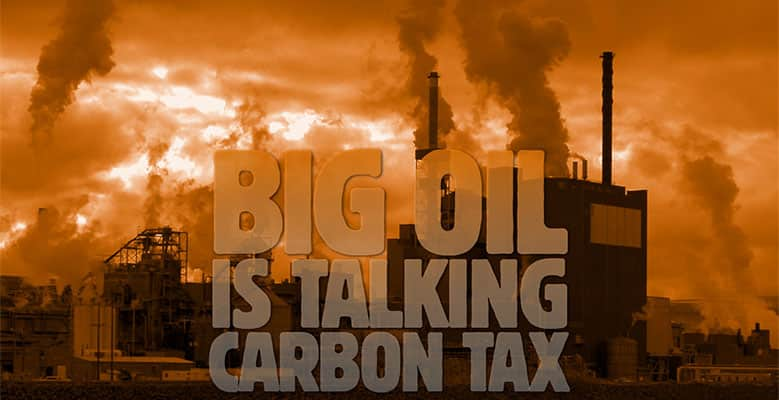August 5, 2015
For well over a century, climate change has been subject to heated debate. Yet despite concrete science and undisputed evidence, Big Oil has remained in staunch denial of the facts. This past May, that all changed.

Six of Europe’s largest oil and gas companies wrote a letter to leaders of the upcoming climate talks in Paris formally requesting an international carbon tax program (kind of like a big, international version of the one we imposed on ourselves here at Ben & Jerry's). The goal would be to reduce carbon emissions and make companies and governments pay for the carbon they emit into the atmosphere. It’s a surprising turn of events and essentially undermines all arguments from those who deny the impact of humans on the environment.
It doesn’t take a climate scientist to recognize the significance of this shift in thinking. Reducing emissions and dependency on fossil fuels is the big picture goal. However, this new development is proof that the petroleum industry recognizes that climate policy is moving forward with or without its input. Therefore it is in its best interest to take part in discussions and influence new policies to its liking. Either way, it’s a positive development and push towards action for negotiators at the Paris conference.
In the short term, this carbon tax would likely benefit these corporations, too, by driving electricity producers from coal to gas. Looking at the bigger picture, Europe’s oil giants are recognizing that the world is inevitably shifting to a lower carbon operating system. Therefore, it’s in their best interest to hedge their bets and get on board to establish predictability in both the market and policy as they transition towards cleaner energy.
And while Europe’s oil giants signed the letter, the three largest oil companies in the US (ExxonMobil, Chevron, and ConocoPhillips) did not. However, signs of a shift in how they plan on doing business have been emerging in recent years. Even ExxonMobil, who for years has poured millions into funding science that denies climate change, recently released a report that shows support for a carbon tax. Of course, with the Republican Party receiving massive funding from the oil industry, it’s hard to say how this political battle will play out.
Regardless of how this all pans out, it’s encouraging to see positive participation from some of the world’s biggest contributors of carbon emissions. The time for change is now, and the window to act is shrinking. However as support grows and cooperation expands, it will only push our world leaders to enact real and positive change.
Recent Articles
Join The Climate Movement
-
With a landmark climate action agreement in place including commitments from 196 countries to fight climate change, now is the time to keep the pressure on and ensure swift action. This climate agreement wouldn’t have happened without millions of people around the world taking action. And we won’t be able to meet the ambitious goals of the Paris Agreement without millions and millions more people taking action in support of a rapid transition to clean energy. Paris was just the beginning, not the end. Let’s get to work towards a greener, cleaner future. Add your voice to the millions demanding action and sign the petition today!


